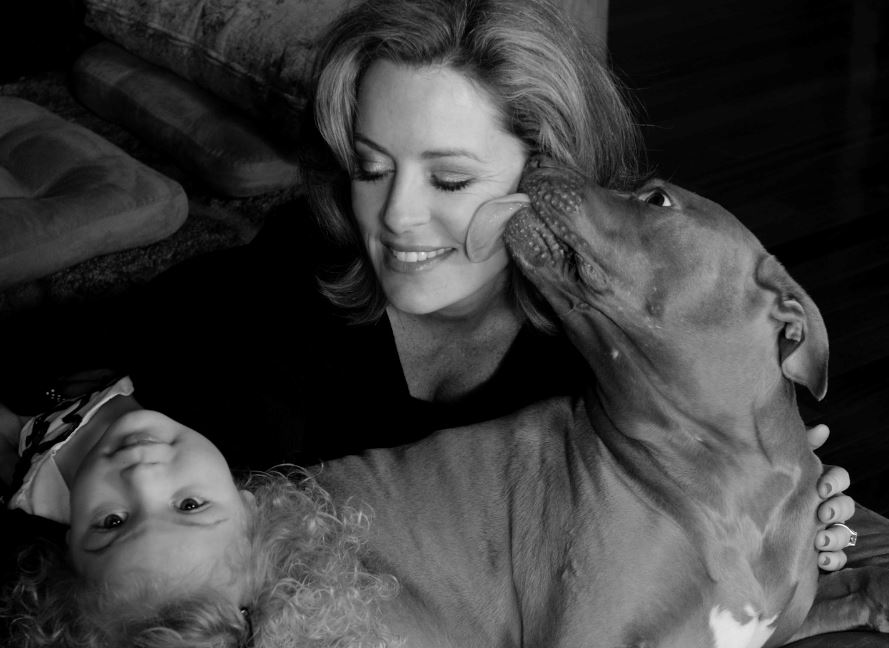The Marital Contract
Let’s face it. I met and married a guy I did business with for a year. We negotiated. We debated. We eventually stopped talking contracts and had a first date. At the end of it, Rog predicted we’d get married within a year. He was wrong. It took six months.
With this as the background and insight into our history together, is it any wonder that the foundational rules for marriage resembled business rules reflecting our thinking? One of the first non-negotiables was this: we will not make any stupid financial decisions. Within a month, this was tested. Do we buy the house? Yes, if we can afford it on one salary (the fine print we’d not placed in the contract). It was a point of debate. Eventually, after many lively discussions (aka vigorous negotiations back and forth), we decided to abide by the original terms of our agreement. We purchased the home applying newly added fine print, (affording a home on one salary). It was a decision made without regard to neighbors, property value, potential schools for as yet unborn children.

the top of the ampitheatre in Ouray, Colorado,
squeezed in on a 3 day weekend then back to work
After a couple of years, the rather generally defined marital contract became refined. The T & C’s extended to how and where we spent our time. We debated whether or not an activity had a good relationship ROI, and if it didn’t, we’d no longer engage in said activity. For those of you who know Rog, you are nodding your head, saying: Yeah, this totally sounds like him.
Case in point: when we married, Rog owned a boat with a friend and co-worker. We enjoyed taking it out on the Puget Sound, but it meant two hours through the locks, perhaps four on the water, another two back into the slip, then two cleaning it up. The eight hours devoted to one activity meant our entire day of relaxation was over before one or both of us took a flight out Sunday. After a year of this, I suggested the activity of boating a high opportunity cost, and it wasn’t financial (moorage fees back then were $250). It was the opportunity cost of doing things with friends, family or nothing—sitting at home watching a game.
At first, Rog balked at me wanting to renegotiate our marital contract. He reminded me the verbal fine print had included me a) knowing he had a boat, b) I fully supported him continuing to own the boat and c) wouldn’t complain about the money or hours. Yep, I had to admit, I’d been on board totally and completely. But who could have foreseen or anticipated the actual commitment to the activity?
Sound familiar? Unanticipated events, the economy, acts of God or simple execution are the downfall of many a contract, marital or business. That begat the first serious renegotiation of what had been a completely sound contract, but it certainly wasn’t the last.

Rog’s contract point: “I’ll never dress up. Ever.” Year 3: he’s King Tut
The new-new marital contract
This experience gave us a taste of things to come, and we started referring to any change in the line items we’d based our marriage upon as elements of the New Deal. The original had been fine, based on sound premises, but those were gone. Times and experiences change and the rules of engagement, even the very definitions, must change along with it.
An instance of an experience changing a contract occurred when Roger’s former boss, a 41-year old hard-driving guy, died on a lunchtime bike ride around Marymoor Park. There he was, peddling along on a clear, blue sky day and fallen over right there on the concrete path, his heart having given out.
Rog was shaken to his core. “He was the more high-stress guy I knew,” Rog kept mumbling in the days leading up to the funeral. Yet I pointed out to Rog that their lifestyles were the same: long hours during a week which never ended. You didn’t get ahead if you weren’t fully in the game.
A week after the funeral, Rog abruptly announced it was time for him to leave the company and take over my business. Keep in mind that when we met, Rog was an executive at Microsoft, I ran my consulting business, splitting my time between Seattle and San Francisco. Those roles had been so clear for so long, they might could have been listed as line items in the Definitions section of a contract.
Our fine print has also included “no street bikes.” Thx to Dad, I’d grown up riding dirt bikes, but street bikes were definitely in the deal-breaker clauses. Year 15, I inserted the footnote “street bikes now allowed.” Left: age 24 in Ouray with Rog, Right: 42 in Idaho.
I balked. I might have sworn once or twice. Him, running my company? He was out of his mind.
“No, you don’t get it,” he said emphatically. “We are not going to keep living our lives like we have tomorrow, because life isn’t an entitlement. My former boss thought it was. Well, it’s not.”
He had a point. We had to live each day as though it were our last—albeit responsibly. Hesitantly, I asked him running my company fit in.
At this, he smiled, and took my hand. “You are going to take twelve months and write that book you have talked about for the last three years. I’ll run your business, so you won’t have any pressure. But here’s the deal.” He paused for effect. “Then it’s my turn.”
I learned his dream was to become a private pilot, must as mine had been to write a book.
“That was not in the fine print of our marital contract,” I pointed out. He shrugged, as if it was no more than a missing clause on product returns.
I was nervous. I was excited, and ultimately, I agreed. A year for a year, marital contract V2.
These photos are the contractual pictorals of evolution, each one representing a change from whence we started to where we are now. Rog said absolutely no dogs or kids, period. One home break-in at year 4= Penelope the pitbull. Year 7, began daughter number one. The pic of her in the plane means we had her flying early on, her daddy making good on his pilots license.
The good old days of the paper napkin contract
Back in the day, my father did a lot of business on the back of napkins, usually in diners in whatever country he was at. The points would be written down, signatures of both party’s initials and that was it. The rest of it just happened, million-dollar deals with products from different countries transacted based on nothing more than trust and commitment. Even today, at age 83, Dad still does business this way, but only with men of his generation: men of their word who do what they say they’d do, they don’t believe in suing because they share the same values. One by one, as these men die, the values seem to die with it.
Rog has watched this play out for two decades, and me long before that. We have probably subconsciously applied some of it to our relationship. Do we need to write everything down, or can we trust the other person will do the right thing when the hard decision needs to be made? Can we assume the other person tried their best, just as one would do in a business partnership, extending some grace that ‘something must have come up?’
Ironically, applying certain ‘business rules’ to our marriage worked in the beginning; we knew how to negotiate and win, with others and then ourselves. It’s what drove us. But over time, we learned that an emotional win on the other hand, is really losing. The greater the stakes, the higher the passion, increasing what the ‘loser’ has left on the table if you will. And what’s been left on the table is a little bit of the love, respect and sometimes the trust of the other person. It’s not worth the emotional win, and in the end, we have no thought, time or energy to go back and even try to recall what was in the original marital contract, let alone each instantiation following.
Contracts continually change, just like marriages
Our partnership went through several more iterations as he abandoned the corporate world for retirement at 42. The first three years were rough; being together non-stop about killed me (I was used to my domain), but the last five have been great. I have had my best friend around when he’s available and I’m not on a project deadline. Now, present day, we are getting ready for yet another change of lifestyles. It doesn’t come at a great time, just when snow season is hitting.
“Snow removal at five-thirty in the morning was not in the marital contract,” I mutter, completely serious, annoyed, and I’ll admit, a little fearful of becoming a snowbeast in the dead of winter.
“Yeah, but neither were having kids, chickens or a dog, and not in that order,” he countered. This was followed up by him telling me I’m more than capable of firing up a fully enclosed UTV with a front-attached 60-inch deck. Another well-made point by my partner in all things of this life.
One could argue contracts are made to be broken. Case in point: Rog is afraid of heights and swore he’d never climb a pyramid. Year 15, he did. Then after we broke the rule on no animals, the clause “Never on couches” was set in stone. Uh-huh. So here we have a Xmas pic snapped with both dog AND child on couch. Multiple breaches of contract right there.
What’s become clear is that the refinements to our now-unrecognizable marital contract has been simplified to the essence of us. We try to do our best. We give the benefit of the doubt. We extend a bit of grace when it’s not easy or even necessarily wanted. It’s our own verbal and emotional contract to the other person, and it’s invisible to everyone but ourselves.







